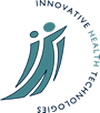IHT Programme
FINAL INTERNATIONAL CONFERENCE
27 October 2005, Church House, Westminster, London
Registration forms are now available here - pdf

The Programme is now in its final year and plans have been put in place for a major conference where its principal results will be explored. This will be an opportunity for researchers, health practitioners, private sector developers and policymakers to hear about the work of 31 projects covering a broad range of fields including drugs, medical devices, genetics, and telehealth informatics. How do they shape health and health delivery and how are they shaped by those who use them? The meeting will ask: Why are some health innovations successful and how do we define success? What effect do new technologies and interventions have on the structuring of delivery, how is their utility and value judged, and how do clinicians, patients, carers and others regard these developments?
This conference comes at an important time: when the results of the UK's Healthcare Industry Task Forces recommendations are being implemented, when the government's two recent White papers on Genetics in the NHS and Public Health set out the priorities for innovation and seek to anticipate long term changes in the character of health, health care and the locus of responsibility for health delivery, and when the House of Commons Health Select Committee's own recommendations on 'The Use of New Medical Technologies Within the NHS' will be made public.
The meeting will be at Church House, Westminster and we expect about 250
delegates to be attending. An outline of the programme for the day is given
below. To register your interest in attending please contact Stephanie Hazel-Gant
at sjg11@york.ac.uk or Telephone 01904
433064.
PROGRAMME
| 10.00 |
Registration and Refreshments
|
| 11.00 |
Welcome from the Chair
|
|
11.10 |
Introduction
|
|
11.20 |
IHTs and Government Policy
|
|
11.30 |
Reproductive and Transformative Technologies This paper will report on findings from six projects that have inter alia, explored prenatal testing and screening for Downs, pre-implantation genetic diagnostics, and genetic screening for a range of disorders. There is a pyramid of potential pathology that lies beneath the relatively small numbers of people currently dealt with by clinical genetic services and the results from these projects will have important implications for the structuring of genetics services in the NHS.
|
|
12.05 |
Information and Empowerment This paper, also reporting on six projects, examines how technologies (such as telemedicine) are made to work and gain utility in clinical settings and the lessons we can learn about implementation; how patients use ICT systems to access information about illness (via the web, NHSDirect/online etc) and the implications this has for their sense of health/illness, patient safety, and their relations to clinical services and how patients' understanding of their illness is changed as a result of brain imaging systems.
|
| 12.40 | Lunch |
| 13.40 |
Theatrical Presentation We are delighted to include a special event involving a theatrical presentation of one of the projects. This will be a presentation of the project directed by Gillian Hundt on genetic screening for Downs, using the data in a novel way to provide new insight into women's experience of the test.
|
|
14.40 |
Innovation, Context and Meaning This paper describes the ways in which health technology innovation takes place over time (through studies on cardiology for example) and how users of innovative systems (patients, regulators, clinicians) make sense of them and reshape them to their own purposes. There are key lessons here for the user/designer relationship and more generally about the organisational and institutional barriers to uptake of new technologies.
|
| 15.15 |
Refreshments
|
|
15:30 |
Policy and Regulation Based on six projects this paper focuses on the problems and response made by regulatory agencies to new technologies, such as tissue engineering and new drug developments. Regulation and technical developments go hand in hand and in this regard regulation is an enabler of innovation in health (and other) settings. How regulatory regimes vary across the Atlantic and within Europe is a key issue that has implications for patient safety, innovation and research.
|
|
16.10 |
Narratives of Evaluation This paper discusses the ways in which new technologies are evaluated within quite different social and clinical contexts, and the lessons this has for more formal evaluation carried out by agencies such as the HTA programme. The IHT Programme held a joint meeting in the summer of 2005 with the HTA international in Rome to explore ways in which social science and health technology assessment might contribute towards each other.
|
| 16.45 |
Closing Address: Looking Beyond the IHT Programme
The Programme is developing new research avenues beyond its formal closure with collaborating agencies focused around 'public health and personal choice' . The closing address will sketch out some of the key areas that will need to be researched in the future especially related to the introduction of an ever increasing number of near-patient technologies and monitoring systems that allow for greater patient-centred management of chronic illness, and a relocation of care from formal clinical into domiciliary and community settings.
|
| 17.00 |
Drinks Reception
|
| 18.00 |
Close of Conference
|
